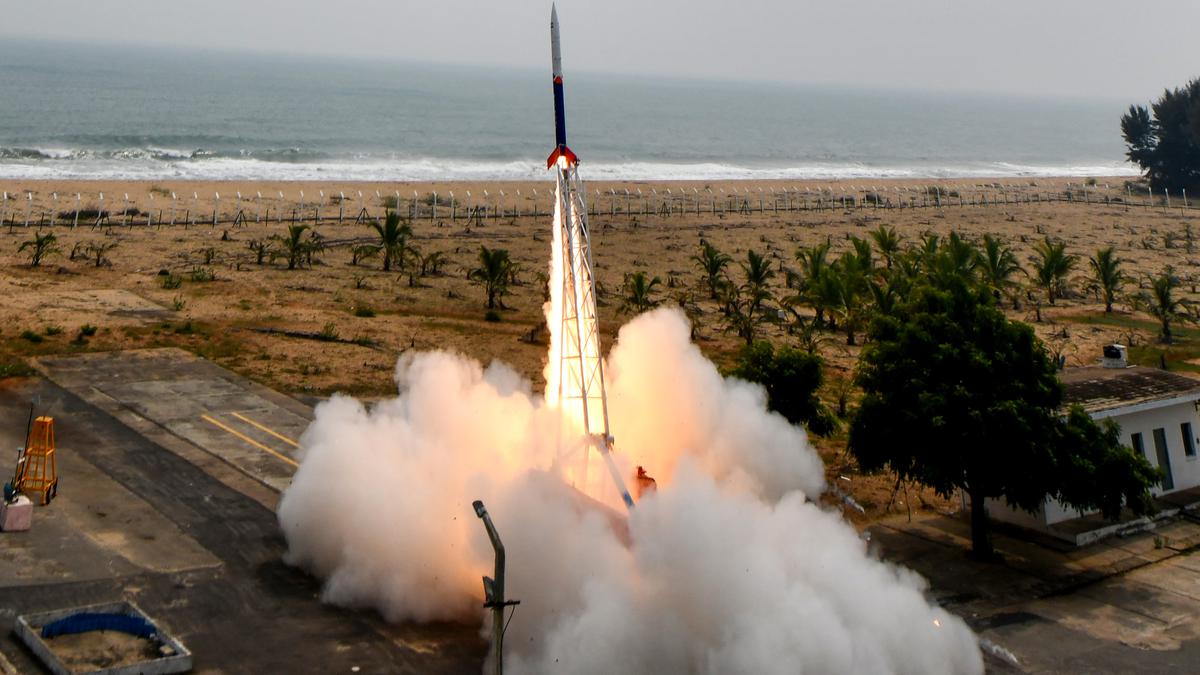
India’s private space sector boom and ISRO’s role | Explained Premium
The Hindu
Along with ISRO, the Indian private space sector has expanded, attracting foreign investment, boosting start-ups, and aiming for $100 billion space economy by 2040. We explore.
The story so far: As the Indian Space Research Organisation (ISRO) forays further into space with missions to the sun and the moon, with space telescopes, landers, and astronauts, the nation’s space sector is also expanding beyond ISRO. With the Centre allowing 100% foreign direct investment (FDI) in the space sector, the industry’s private players are eyeing a boost in funding from overseas companies and investors.
Since ISRO’s founding in 1969, several state-owned firms like Hindustan Aeronautics Limited (HAL) and Antrix Corporation, and private companies like Godrej Aerospace, Ananth Technologies, and Larsen & Toubro have helped it manufacture rockets, satellites, and other space components for ISRO. However, the boost to the Indian private space sector came in 2020 when the Indian National Space Promotion and Authorisation Centre (IN-SPACe) was established to promote, authorise and supervise various space activities of non-governmental entities (NGEs).
Here is a look at India’s private space sector, the companies involved, laws promoting it and ISRO’s role.
Early partners of ISRO include Data Patterns, Hindustan Aeronautics Ltd (HAL), Larsen & Toubro, and Godrej Aerospace, which helped manufacture auxiliary components. While production of launch vehicles, satellites, spacecrafts, and boosters was mainly handled by ISRO (in-house or in collaboration with international partners), these companies helped fabricate spacecraft components, satellite systems, ground stations, satellite and ground station control systems, rocket engines, and communication systems
In 1992, the Department of Space (DoS) spun off Antrix Corporation Ltd., a wholly government-owned company under ISRO’s administrative control, to promote, market and deliver commercial products of ISRO to international companies. Antrix is the conduit between ISRO and its private industry partners to facilitate technology transfer, assess financial and commercial viability of joint ventures and develop the industrial capabilities of the Indian space sector.
Some of its core tasks are:
While Antrix has been launching foreign commercial satellites using ISRO’s PSLV since 1999, a major boost to these launch services occurred in September 2016 when the PSLV C-37 successfully injected 104 satellites into orbit in a single launch – the highest so far.

 Run 3 Space | Play Space Running Game
Run 3 Space | Play Space Running Game Traffic Jam 3D | Online Racing Game
Traffic Jam 3D | Online Racing Game Duck Hunt | Play Old Classic Game
Duck Hunt | Play Old Classic Game











